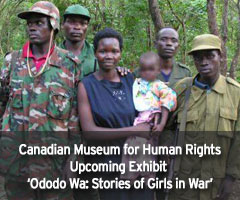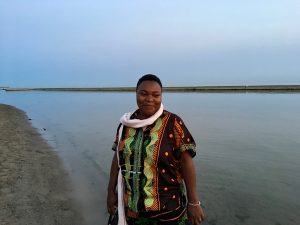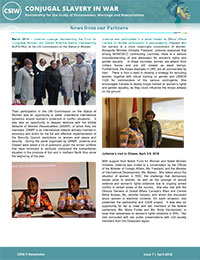Aiding Disadvantaged and Traumatized Women and Girls (ADWANGA) Liberia
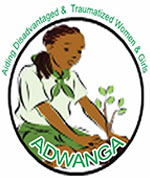 The organization for Aiding Disadvantaged and Traumatized Women and Girls (ADWANGA) works to promote women and girls’ empowerment and participation in policies and decision-making in Liberia through programs that will enhance their self– esteem, dignity and self–reliance. ADWANGA seeks to transform the negative factors impeding the development and full participation of women and girls in socio-economic as well as political activities. It provides services and support, financial and in kind, to disadvantaged and traumatized girls and women in Liberia, predominantly in Montserrado and Nimba counties. ADWANGA hopes to see women and girls of Liberia empowered and are fully involved in the process of governance and decision-making and as well enjoy their full rights and protection under the law.
The organization for Aiding Disadvantaged and Traumatized Women and Girls (ADWANGA) works to promote women and girls’ empowerment and participation in policies and decision-making in Liberia through programs that will enhance their self– esteem, dignity and self–reliance. ADWANGA seeks to transform the negative factors impeding the development and full participation of women and girls in socio-economic as well as political activities. It provides services and support, financial and in kind, to disadvantaged and traumatized girls and women in Liberia, predominantly in Montserrado and Nimba counties. ADWANGA hopes to see women and girls of Liberia empowered and are fully involved in the process of governance and decision-making and as well enjoy their full rights and protection under the law.development Research and Project Centre, Nigeria
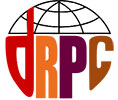 The development Research and Projects Centre (dRPC) is a locally registered non-profit group established during the days of military rule in Nigeria in 1994. The Centre was established with the aim of catalyzing change within the North of Nigeria. The Centre’s mission is to build indigenous capacity and generate local knowledge for sustainable development. Its vision is for a vibrant and empowered society in which communities, civic associations and women in particular, work together to put and keep Nigeria on the path of sustainable development. The Centre works on both the demand and supply side of development programs, building the capacity of government and civil society groups to implement social interventions which benefit women and girls using a participatory development model. The small ‘d’ in dRPC is an indication of the Centre’s soft approach to development.
The development Research and Projects Centre (dRPC) is a locally registered non-profit group established during the days of military rule in Nigeria in 1994. The Centre was established with the aim of catalyzing change within the North of Nigeria. The Centre’s mission is to build indigenous capacity and generate local knowledge for sustainable development. Its vision is for a vibrant and empowered society in which communities, civic associations and women in particular, work together to put and keep Nigeria on the path of sustainable development. The Centre works on both the demand and supply side of development programs, building the capacity of government and civil society groups to implement social interventions which benefit women and girls using a participatory development model. The small ‘d’ in dRPC is an indication of the Centre’s soft approach to development.Solidarité féminine pour la paix et le développement Intégral (SOFEPADI), Democratic Republic of the Congo

Solidarité feminine pour la paix et le développement integral (Female Solidarity for Peace and Integrated Development – SOFEPADI) is a member of the Congolese Coalition for Transitional Justice (CCJT). SOFEPADI is also the focal point in the Democratic Republic of Congo (DRC) of the Coalition for women’s human rights in conflict situations. Since 2003, SOFEPADI has been focusing on addressing women’s rights violations, more specifically crimes of sexual and socio-cultural violence. As part of its programme for combating impunity for sexual offenders in Beni, Bunia and across Eastern Congo, SOFEPADI is committed to provide legal assistance to women who are victims of sexual violence.
Liu Institute for Global Issues, University of British Columbia, Canada
 The Liu Institute for Global Issues is an interdisciplinary research hub for emerging global issues in the Faculty of Arts at the University of British Columbia (UBC). At the Liu Institute, we strive to catalyze innovative thinking and positive change, bridging the gap between academics and practitioners to transform research into actions. Our policy-led approach encourages examination of economic, social and environmental interactions and solutions that advance sustainability, security and social justice, particularly in lower income communities. Our current focus embraces issues related to Development, Environment, Conflict (and Post-Conflict) and Emerging Forms of Politics.
The Liu Institute for Global Issues is an interdisciplinary research hub for emerging global issues in the Faculty of Arts at the University of British Columbia (UBC). At the Liu Institute, we strive to catalyze innovative thinking and positive change, bridging the gap between academics and practitioners to transform research into actions. Our policy-led approach encourages examination of economic, social and environmental interactions and solutions that advance sustainability, security and social justice, particularly in lower income communities. Our current focus embraces issues related to Development, Environment, Conflict (and Post-Conflict) and Emerging Forms of Politics.Refugee Law Project, Makerere University, Uganda
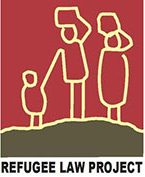 The Refugee Law Project (RLP) is a community outreach project of the School of Law, Makerere University. RLP seeks to ensure fundamental human rights for all asylum seekers, refugees, and internally displaced persons within Uganda. We envision a country that treats all people within its borders with the same standards of respect and social justice. We work to see that all people living in Uganda, as specified under national and international law, are treated with the fairness and consideration due fellow human beings.
The Refugee Law Project (RLP) is a community outreach project of the School of Law, Makerere University. RLP seeks to ensure fundamental human rights for all asylum seekers, refugees, and internally displaced persons within Uganda. We envision a country that treats all people within its borders with the same standards of respect and social justice. We work to see that all people living in Uganda, as specified under national and international law, are treated with the fairness and consideration due fellow human beings.Solidarité pour l'épanouissement des veuves et des orphelins visant le travail et l'auto-promotion (SEVOTA), Rwanda
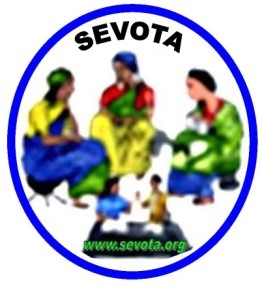
SEVOTA started operating on December 28, 1994 to restore the human relations destroyed during the genocide. SEVOTA helps its beneficiaries to organize themselves in order to analyze the issues they and their community face and progressively find suitable solutions. Its mission is to help improve the social, economic and cultural position and living conditions of widows and orphans. Its overall objective is to promote activities related to peace, reconciliation and the promotion of human rights, women’s rights and vulnerable children’s rights. Through spaces for reflection, women, children and youth share traumatic experiences they underwent to bring about attitudinal change and strategic actions promoting human positivity. This is how children have heard the truth from their mothers who had been trained and informed about their rights, and supported through a therapeutic process. Some of the beneficiary women engaged in advocacy, leading to rape being recognized as a crime against humanity. Beneficiaries work for their dignity and to reduce poverty in order to achieve peace, security and development.
Plan International
 Plan International is a global movement for change, mobilizing millions of people around the world to support social justice for children in developing countries. Founded in 1937, we are one of the oldest and largest international development organizations, working in partnership with millions of people around the world to end global poverty. Not for profit, independent and inclusive of all faiths and cultures, we have only one agenda: to improve the lives of children.
Plan International is a global movement for change, mobilizing millions of people around the world to support social justice for children in developing countries. Founded in 1937, we are one of the oldest and largest international development organizations, working in partnership with millions of people around the world to end global poverty. Not for profit, independent and inclusive of all faiths and cultures, we have only one agenda: to improve the lives of children.Department of Political Studies, University of Witwatersrand, South Africa
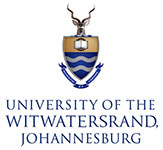
Welcome to the Department of Political Studies at Wits, one of Africa’s leading academic departments for the study of politics. We are proud of our prizewinning teaching and research staff who are closely engaged with the challenges of a society in transition and with the place of South Africa in Africa, the Global South, and the wider world. Our staff and students are among the most diverse in the university and country. We offer both undergraduate and postgraduate programmes. Undergraduates can register for majors in Political Studies and in African Politics and History. A major in Political Studies can form part of our exciting new programme in Politics, Philosophy and Economics (PPE). Currently over 1,000 students take courses in our undergraduate programmes. We offers undergraduate courses on, amongst other topics: states, power and governance; theories of modernity; political sociology; South African politics; African politics; human rights; theories of freedom, justice and difference; and theories of development.
Our postgraduate programmes include Honours and Masters degrees in Political Studies and a Masters in Politics and Gender. We also have a strong PhD programme. The Honours and Masters degrees include a taught component on, amongst other topics: social policy; political sociology of South Africa; feminism and gender; the politics of public policy; structuralism and post-Marxism; totalitarianism and religious fundamentalism; violence, genocide and the African state. We also provide instruction in research methods.
The Women's Forum of Sierra Leone
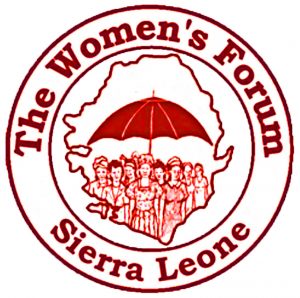 The Women’s Forum (Sierra Leone) was established in February,1994 in response to the need for a forum for mobilizing women to take collective action on matters affecting their status and welfare. Our mandate is to lobby and advocate on gender issues in Sierra Leone. In line with this, we conduct research, mount sensitization and awareness raising campaigns on gender equality and human rights issues. We are particularly concerned about women and children’s rights, sexual and gender-based violence and women’s socio-economic empowerment. We have been involved with the project since its inception; and look forward to more sustained and fruitful interventions for the benefit of victims of sexual violence. Our motto is ‘Solidarity for Empowerment, Equality and Development.’
The Women’s Forum (Sierra Leone) was established in February,1994 in response to the need for a forum for mobilizing women to take collective action on matters affecting their status and welfare. Our mandate is to lobby and advocate on gender issues in Sierra Leone. In line with this, we conduct research, mount sensitization and awareness raising campaigns on gender equality and human rights issues. We are particularly concerned about women and children’s rights, sexual and gender-based violence and women’s socio-economic empowerment. We have been involved with the project since its inception; and look forward to more sustained and fruitful interventions for the benefit of victims of sexual violence. Our motto is ‘Solidarity for Empowerment, Equality and Development.’The Harriet Tubman Institute, York University
 The Harriet Tubman Institute for Research on Africa and its Diasporas at York University is proud to be part of an international network of research centres committed to overcoming injustice and inequity as a result of slavery. Our research focuses on the forced and voluntary movement of African peoples around the world. As a social innovator, the Institute’s mandate is to promote a greater understanding of the history of slavery and its legacy. The Institute fosters debate, informs public policy and strives to resolve current social injustices. The Institute is named for the spirit of Harriet Tubman, liberator of her people, feminist, and humanist (c.1820-1913).
The Harriet Tubman Institute for Research on Africa and its Diasporas at York University is proud to be part of an international network of research centres committed to overcoming injustice and inequity as a result of slavery. Our research focuses on the forced and voluntary movement of African peoples around the world. As a social innovator, the Institute’s mandate is to promote a greater understanding of the history of slavery and its legacy. The Institute fosters debate, informs public policy and strives to resolve current social injustices. The Institute is named for the spirit of Harriet Tubman, liberator of her people, feminist, and humanist (c.1820-1913).
The Harriet Tubman Institute is dedicated to capturing, studying, and telling the story of the migration of African peoples around the globe, from centuries ago to the present day. We search the world for materials that help us know and understand this history – from official and personal documents to photographs, interviews and maps. Whenever possible, we digitally preserve and make these accessible to anyone with an interest in seeing and learning from this rich store of information. As an institute of scholars, we also conduct an extensive program of research, publication, and post-graduate studies. As an institute of concerned citizens, we interact with the community and the wider public in raising awareness of contemporary issues of slavery and racism. From our base at York University in Toronto, we connect into an international, multi-disciplinary network of people who share a passion for this field of study.



